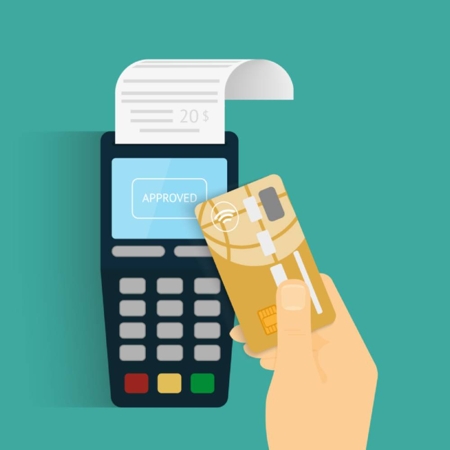We’ve updated our accountants for commercial property owners page
With the assistance of our expert tax and accounting services, commercial property owners across London can trust us to manage their business affairs.
Investing in commercial property in the UK is a financially rewarding venture as the yields on commercial property are often higher than residential property. If you are planning to buy a commercial property in London and receive income by letting it, then it is best to work with one of our specialist commercial property accountants and let us help you with tax and accounting.
At Tax Agility, we understand that as commercial landlords, your focus is on growing your portfolio. Naturally, you want someone you can trust to help you manage the tax and accounting side, areas that are often complex, time-consuming, and best left to specialists who know what they are doing.
This informative page covers:
- Business rates
- Stamp Duty Land Tax
- VAT
- Commercial property and Inheritance Tax Relief
- Commercial property and pensions through SIPP
- Making Tax Digital
With years of helping commercial landlords in London, we can advise on:
- Business structure to manage your commercial property
- Corporate tax planning
- Your personal tax planning, how to minimise your tax liability legitimately
- VAT matters
- Legitimate expenses that can be offset against rental income
- How to maximise capital allowances on the acquisition of a commercial property
Of course, we can also assist on:
- Accounts and bookkeeping
- Company secretary
- Corporate services
- Management consultancy
- Tax investigations
Let our accountants for commercial property owners help you
At Tax Agility, we’re passionate about accounting for commercial property. We have a team of experts who understand each and every financial rule that applies to commercial property. If you’re a commercial property owner or are planning to invest in commercial property in London, talk to one of our commercial property accountants at Tax Agility first.
Our advice is always clear and honest, plus we also offer an initial Free consultation which will allow us to understand your situations first. Contact one of our specialist accountants for commercial property owners today on 020 8108 0090. Alternatively, you can send us a message via our Contact Form.
IT Contractor Tax: What do I have to pay?
 As an IT contractor, two common ways to provide your IT services to clients are either through a limited company or an umbrella company – and each mode of operation will determine your tax obligations.
As an IT contractor, two common ways to provide your IT services to clients are either through a limited company or an umbrella company – and each mode of operation will determine your tax obligations.
The UK business landscape is mostly made up of SMEs ranging from micro (0-9 employees), small (10-49 employees) to medium-sized (50-249 employees) companies. The nature of SMEs makes getting external IT contractors a viable option for companies that lack the internal resources to fulfil their IT functions, particularly in this day and age when the rate of technological advancement can be startling, making it hard for non-experts to keep up.
Common IT services engaged by SMEs include network set-up, software support, database management, cloud storage and computer repair, to name but a few. In the UK, particularly in London, there are hundreds of thousands of IT contractors assisting businesses with various IT issues.
Most IT contractors choose to operate through an intermediary such as a ‘personal service company’ in the form of a limited company. The reason is simple – incorporating your IT contractor business as a limited company is tax efficient as it allows you to:
- Split your income between salary and dividends. Dividends aren’t subject to National Insurance Contributions (NICs) and also taxed at a lower rate, meaning you pay less tax.
- Claim tax relief on legitimate expenses
Tax obligations for IT contractors operating through a limited company
For IT contractors operating through a limited company, your main tax obligations are National Insurance Contributions (NICs), Dividend tax, Corporate tax, VAT and income tax. It is, however, best to take advantage of our free initial consultation and discuss your tax obligations with one of our specialist accountants for contractors face-to-face.
National Insurance Contributions (NICs)
National Insurance is a tax system that funds state benefits. At present, if you draw a salary of more than £166 to £962 a week, you are required to pay 12% Class 1 National Insurance rate. For a salary above £962 a week, you pay a 2% charge on the additional earnings.
Most contractors pay themselves by drawing a salary and also declaring dividends. While dividends aren’t subject to National Insurance Contributions, drawing a salary above £166 a week will see you make a contribution to National Insurance as stated above.
There are contractors who consciously pay themselves less than £166 a week to minimise their exposure to NICs. They then take dividends from retained profit to form the majority of their income. It is best to talk to an independent accountant and work out your annual salary if you plan to take this approach.
Dividend tax
After a company pays its Corporate tax, the retained profit can be distributed as dividends to shareholders (which generally means you, as you are likely to be the sole shareholder of your limited company).
Thanks to its three main benefits, many contractors choose to use dividends to form part of their income. The benefits are:
- Dividends are not subject to NICs.
- A £2,000 dividend allowance is provided, meaning the first £2,000 of dividends aren’t taxable.
- Dividends have a lower tax rate than salaries. For tax year 2019/20, dividend tax rates are 7.5%, 32.5% and 38.1% which you must declare on your self-assessment.
You pay dividends by declaring them in the company board meeting minutes and writing up a dividend voucher showing the date, company name, name(s) of the shareholder(s) being paid a dividend and amount of the dividend.
Corporation Tax
Corporation tax is a levy paid on a company’s profits; the figure of which emerges once legitimate business expenses have been deducted from revenue. As mentioned in the article “Business expenses you can claim as an IT contractor”, if you’re a contractor operating outside of IR35, you can claim more business expenses than a contractor in IR35 and the article lists quite a few examples. In the event that you are still unsure about IR35, it’s best to talk to one of our accountants specialising in contractors or check out this post “What is IR35? A brief guide to the IR35 legislation”.
For tax year 2019/20, Corporate tax rate is at 19%, but the government plans to reduce the rate to 17% for tax year 2020/21. The Corporate tax year spans from 1 April to 31 March annually which may or may not be aligned with your company’s accounting period, and in general, you have 12 months from the end of your accounting period to file your return and 9 months to pay any tax due – deadlines are imperative so most contractors rely on a qualified accountant to handle this.
Value Added Tax (VAT)
It is commonplace for contractor businesses to be registered for Value Added Tax (VAT), which is applied to all services you provide to clients. You will be required to submit a quarterly VAT return to HMRC alongside an electronic payment for this sum.
The standard rate for VAT charged to clients is 20% of the service fee, however, you can apply to HMRC for the VAT Flat Rate Scheme, which can be beneficial to your business (depending on its structure and setup) in circumstances where you negotiate a reduced fixed rate of VAT and can keep the difference between what you pay and what you charge your customers.
Current VAT flat rates that can be applicable to an IT contractor and save them money are:
- Computer repair services 10.5%
- Computer and IT consultancy or data processing 14.5%
To join the scheme, your VAT turnover must be less than £150,000 (excluding VAT) a year.
Income Tax
In the UK, if you’re self-employed, a business partner or a director of a limited company, you’re required to file a tax return. You must submit your self-assessment tax returns by 31 October (paper) or 31 January (online), otherwise, you risk being penalised as discussed in our post “Self-Assessment Penalty: What happens if you miss the Self-Assessment Tax Return Deadline?”
As an IT contractor juggling multiple tasks, our advice to you is to use an accountant with proven track records working with contractors to help you manage your tax affairs.
Umbrella Company Tax
For IT contractors who work under an umbrella company, you’re considered as an employee in the umbrella company, meaning the company deducts all taxes and NICs and you receive a net salary have no further taxes to pay. Although it sounds easy, in reality, you are likely to pay more as the monthly fee charged by the umbrella company can be substantial.
Experienced accountants for IT contractors
To speak with one of our professional accountants for contractors to discuss more tax planning tips for IT contractors operating as a limited company in London, contact us today on 020 8108 0090 or get in touch with us via our contact page to arrange a complimentary, no obligation meeting.
If you found this interesting and informative, you should check out:
- Tax planning tips for self-employed contractors
- Moving from permanent employee to full-time contractor
- How Xero can help contractors in the UK
This post is intended to provide information of general interest about current business/ accounting issues. It should not replace professional advice tailored to your specific circumstances.
Business expenses you can claim as an IT contractor

For IT contractors, staying up to date with the latest developments, technologies and innovations is part and parcel of your job description.
As the IT industry is ever changing, staying on trend is imperative. Likewise, staying informed about the latest developments and changes to your business’s tax considerations and requirements is equally important.
In 2017, public sector contractors’ tax status changed following amendments made to IR35 legislation. Under these reforms, IR35 now stipulates that it is the role of the ‘client’ to ensure that a contract meets the requirements of IR35 categorisation, where previously the onus was on the contractor to ensure that these requirements were met.
From April 2020 onwards, all contractors, operating in both public and private sectors, will be affected by these changes with IR35 consolidating a mandate that requires clients to ensure that any contract entered into is valid under IR35. The contractor tax sphere is, therefore, a complex and complicated paradigm that is constantly shifting and being updated.
Staying on top of these categorisations is hard work, and so too is understanding the various expenses you can claim for now that these classifications are shifting. In this post, our London’s local accountants for contractors aim to discuss the business expenses IT contractors can claim for both inside and outside of IR35 legislation, as well as what to do in the event that you find yourself unsure of your classification.
What is a business expense?
A business expense is a charge your business incurs while operating that is considered “ordinary and necessary” with respect to the running of the enterprise. You can claim these expenses back as deductions from your business’s yearly tax returns and thereby mitigate the overall tax payable on your annual returns.
As a contractor, a business expense is one that is incurred in the performance of your core service or on behalf of your client. You are able to claim back such expenses as deductions, meaning they can be taken from your gross profit before tax is applied. Just as your business’s structure will determine what type of taxes you are eligible to pay, your IR35 status will also determine which expenses you are allowed to claim.
What business expenses can IT contractors claim outside IR35?
As a contractor working outside of IR35, you are classified as operating a legitimate, genuine contractor business and as such, are not deemed to be a ‘disguised employee’ as defined by HMRC’s guidelines. This means that you have greater freedoms with respect to your rights as a business operator, improved tax efficiency and the expenses you can claim.
If your contract falls outside the scope of IR35, you can claim for a number of business expenses that can make a significant contribution towards reducing your overall taxable revenue, such as:
- Costs associated with setting up your company.
- Salaries of company employees (typically just yourself as a contractor – and only where applicable as specified by HMRC).
- Costs associated with an external accountant providing accounting and bookkeeping services.
- National Insurance Contributions (NICs) and contributions to a pension plan.
- Basic costs of operating a business such as business rent, utilities, Internet services, phones, insurance, office costs.
- Equipment costs such as PCs, laptops and software.
- Training expenses if they are directly related to your contract work.
- Subscription to HMRC-approved professional organisations or magazines related to your contract work.
- Costs of entertaining clients or potential clients.
- VAT on expenses if your company is VAT registered.
What expenses can IT contractors claim inside IR35?
As a contractor working inside of IR35 in the private sector, you can claim a fixed 5% to cover the cost of running a company (please note that this isn’t applicable to contractors working in the public sector). They can include:
- Costs of using your home as an office
- Administration and secretarial support
- Accountancy and tax advice
- Business development costs
- Printing, postage and stationery
- Telecoms
- Insurance
- Training costs
- Certain computer equipment
- Bank charges
- Hire purchase payments
Please note that travel and subsistence expenses cannot be claimed.
As per the changes to IR35 legislation with respect to contractors working in public sectors, if HMRC finds you to be working inside IR35 in a public sector occupation this 5% expense allowance cannot be claimed. As for the imminent changes to IR35 classifications in private sector jobs, this will likely transfer also, however, this is yet to be confirmed.
Do note that these lists are not exhaustive, and it is always advisable to consult your accountant with respect to the applicable expenses that you might be able to claim as a contractor business or limited company. If you’d like to know more about the expenses you might be eligible to claim when operating outside or inside the scope of IR35, contact one of our specialist accountants for contractors today.
Accountants for IT contractors
Becoming an IT contractor is as demanding as it is rewarding. While there are some significant benefits to working as a contractor, the financial and fiscal requirements of anyone operating their business can be overwhelming.
To be a successful IT contractor, balancing your business operations and financial responsibilities is key, and this is where Tax Agility can help. Our team of accountants work with contractors from all walks of life and what expenses you can or cannot claim is one of the enquiries we handle daily. If you’d like to know more, contact us on 020 8108 0090 today or drop us a line via our contact page.
If you found this useful, you might also like:
- How Xero can help contractors in the UK
- Moving from permanent employee to full-time contractor
- Tax planning tips for self-employed contractors
This post is intended to provide information of general interest about current business/ accounting issues. It should not replace professional advice tailored to your specific circumstances.
Why your business should be accepting card payments
 As almost half of all adults in the UK carry less than £5 cash on them, businesses should accept card payments to remain competitive.
As almost half of all adults in the UK carry less than £5 cash on them, businesses should accept card payments to remain competitive.
According to UK Finance, the body that represents leading finance and banking firms, debit card payments surpassed cash for the first time in 2017 with a total of 13.2 billion transactions made. The percentage of card purchase is also set to grow year after year, predicted to reach a lion share of 79% of all transactions made by 2026.
For many UK-based small and medium enterprises (SMEs), accepting card payments isn’t an option but a necessity, because failing to do so can drive a potential customer into the arms of a direct competitor. In fact, according to a Barclaycard survey, around one in three adults would consider cancelling a purchase if a retailer didn’t accept card payments.
At Tax Agility, our team of chartered accountants work very closely with SME owners across London, and we understand the concerns shared by many SME owners with regards to card payment, particularly card fraud. So in this article, we aim to discuss the best ways to integrate card payments for your business as well as methods to prevent card fraud. Before we start, let’s take a look at the benefits of accepting card payments.
The benefits of accepting card payments
Accepting card payments brings numerous benefits to a small business owner and here are the top favourites:
You’re likely to get more sales
Research has shown that consumers spend more and are more likely to make impulse purchases if they can pay by card. Prelec and Simester of MIT did one of the most significant studies in 2001, which found out that shoppers spend up to 100% more when using their card instead of cash. Other researchers also found a similar pattern.
You can compete
Your competitors may already be accepting card payments and meeting the needs of consumers today. By being able to accept card payments, you are then capable of competing.
It’s safer and more efficient
With less cash in hand, you are reducing the time spent counting money and reconciling your accounts, given that most cloud accounting software can link to your Electronic Point of Sale digital systems directly – allowing you to know the total sales amount by pressing a button. Also, as you don’t have to transport the cash to a bank, you can significantly reduce the risk of being robbed.
How do I start accepting card payments?
The first step to accepting card payments is determining where the transactions are made. To accept debit or credit cards in a physical venue, you need a card reader and a merchant account, though in some instances you can also accept payments on a smartphone or tablet. To accept credit cards online, you need an e-commerce site and a payment gateway (like Paypal).
For in-store card payments, you can typically choose one of the following three types of electronic points of sale (POS) systems:
- Countertop card machines - Typically recommended for high street retailers, small goods stores and service providers. These terminals are fixed and part of a countertop till.
- Portable card machines - The ideal solution for retailers in the hospitality industry, e.g. bars, restaurants and cafes. This type of device allows you to accept credit and debit card payments from anywhere on your premises.
- Mobile card machines - These terminals are designed for businesses whose work involves a high volume of movement across the country such as tradespeople, contractors, taxi drivers and couriers. The machines utilise mobile connectivity and allow you to accept card payments wherever you have a network reception.
Please note that not all payment machines come ready to accept Apple, Samsung and Android Pay, so it is worth checking with the provider considering the increased popularity of these payment methods.
Beware of card fraud
According to UK Finance, £1 billion was lost to fraudsters in 2017, and card fraud accounts for 80% of all recorded fraud cases. Merchants, i.e. small business owners, may be liable when fraud happens, which is why it pays to stay vigilant and make sure that you follow the right process to mitigate risks.
The Barclaycard website outlines a few common card fraud scenarios and determines who’s liable in each situation:
- Card fraud happens when a customer pays for your services/ products using a contactless card or a Chip & Pin method – the merchant is not liable
- Card fraud happens when a customer pays for your services/ products not using a contactless card or a Chip & Pin method (meaning they use the Chip & Signature method, or you have to manually key in the card number) – the merchant may be liable
- If your customers pay for a service/ product by calling you up and supplying the payment card details over the phone or via postal mail – the merchant is liable
- If you take an online payment using the 3-D Secure method like Mastercard SecureCode, Verified by Visa and American Express SafeKey – the merchant is not liable
- For online payment that is processed without the 3-D Secure method – the merchant is liable
Tax Agility works with small business owners
Although we can’t recommend any particular brand of EPOS systems, we have worked with many small business owners across London to know that card payment is an issue. As a result, we have put together this blog post in the hope that it will be helpful for you when you’re deciding whether or not to accept card payments.
In addition, if you’d like to talk to us about any of the financial issues you face, from bookkeeping to tax planning, please give us a call on 020 8108 0090 or get in touch with us via our contact page.
If you found this interesting, you might also like:
- Does HMRC object to putting family members on the payroll?
- Guide to setting up a medical practice in Central London
- Guide to setting up a gastropub in Central London
- Guide to setting up a retail outlet in Central London



